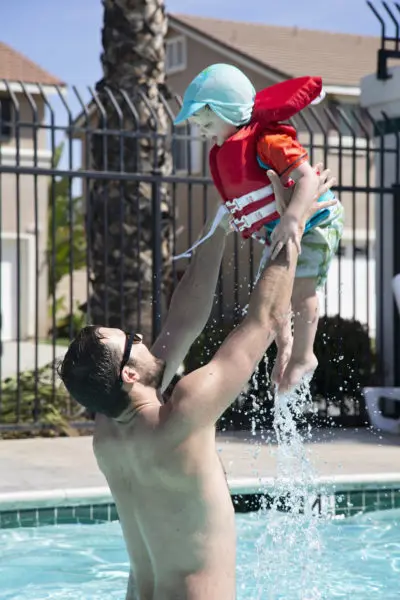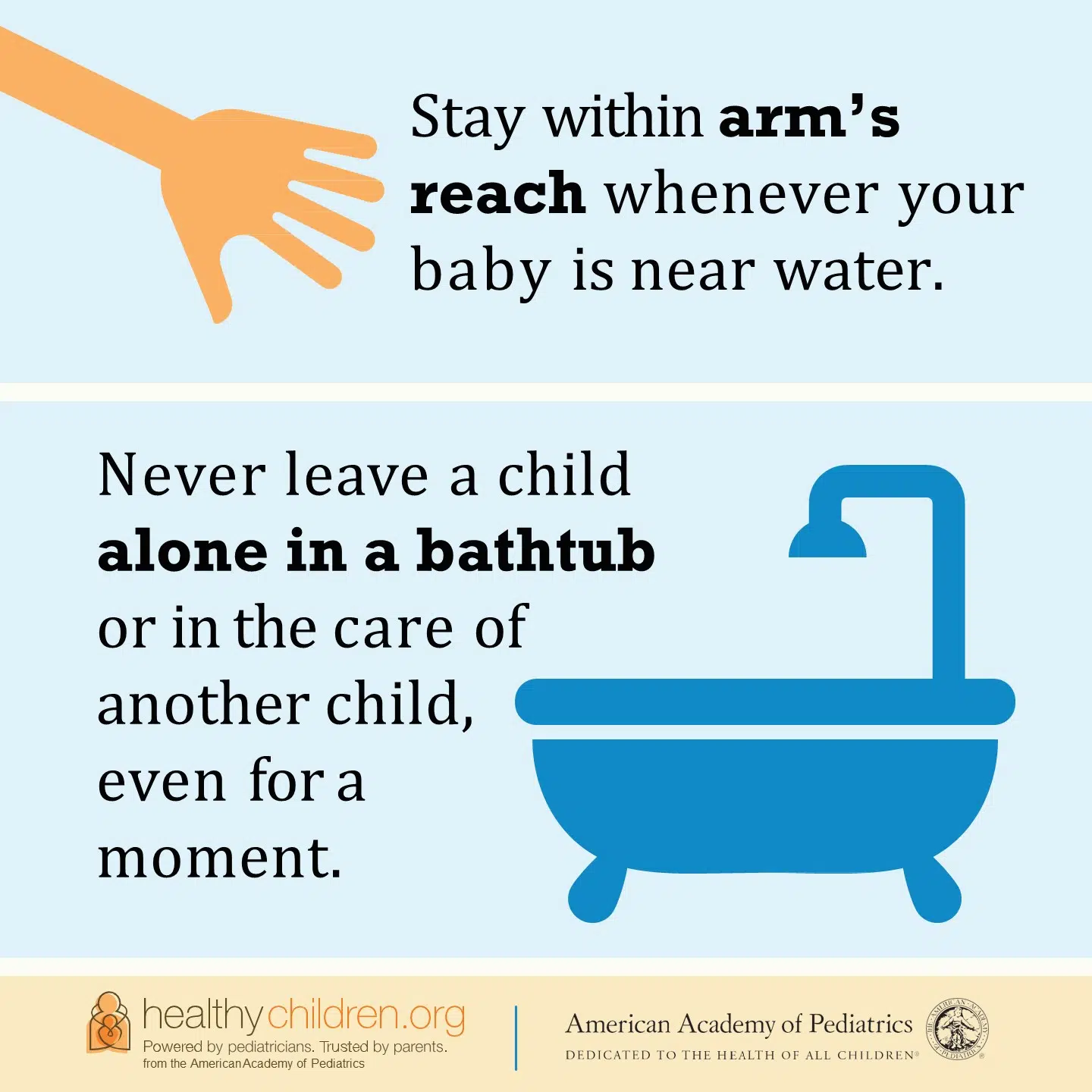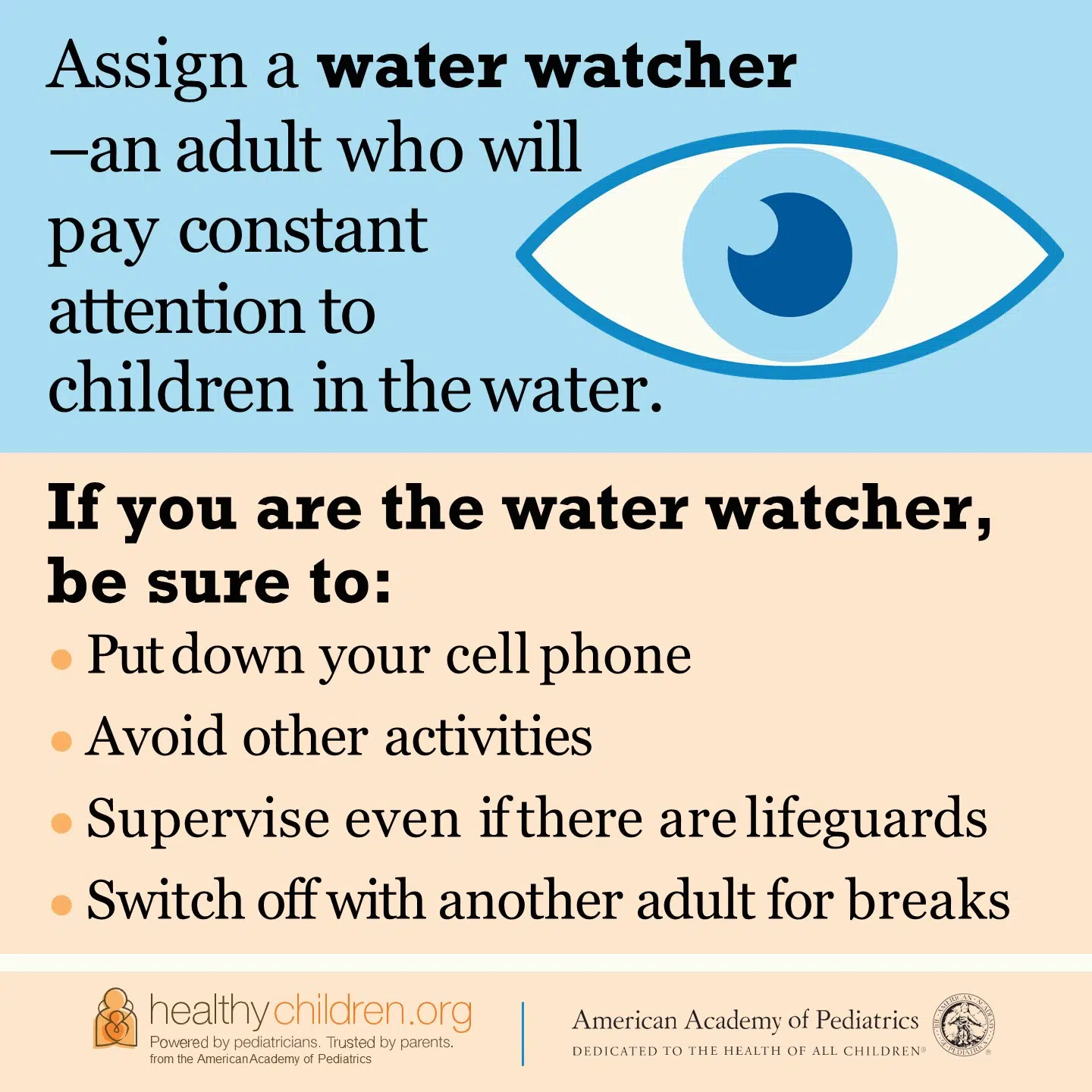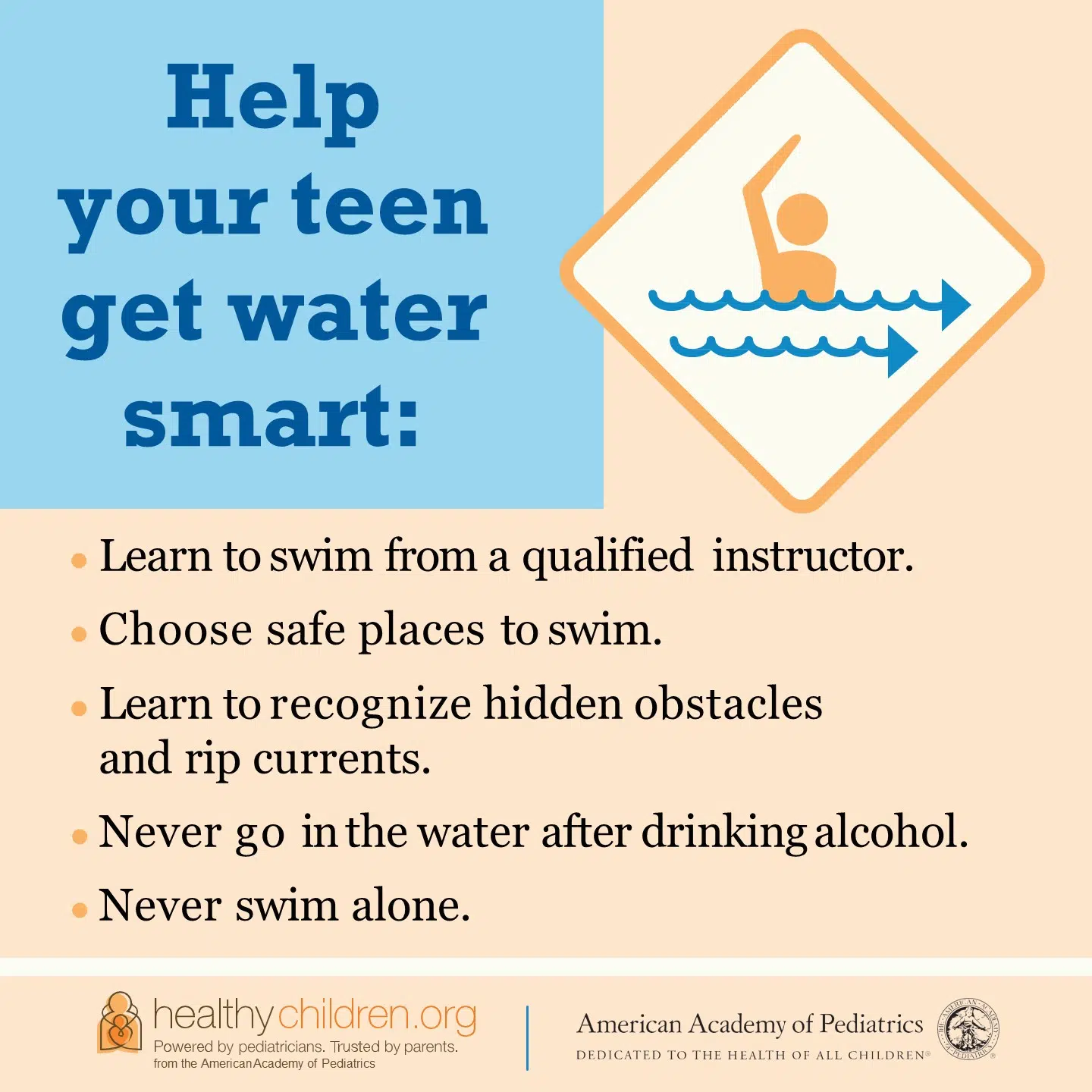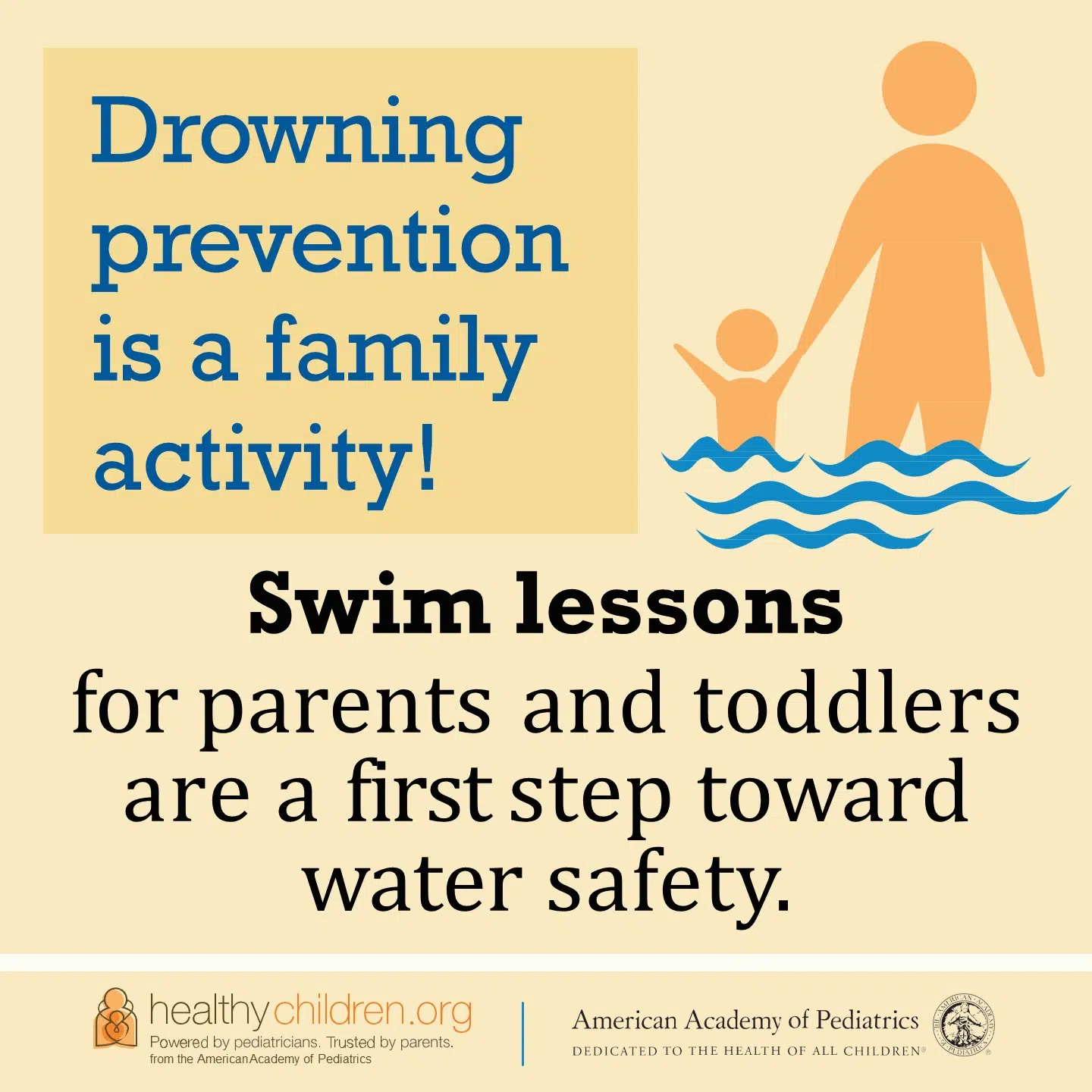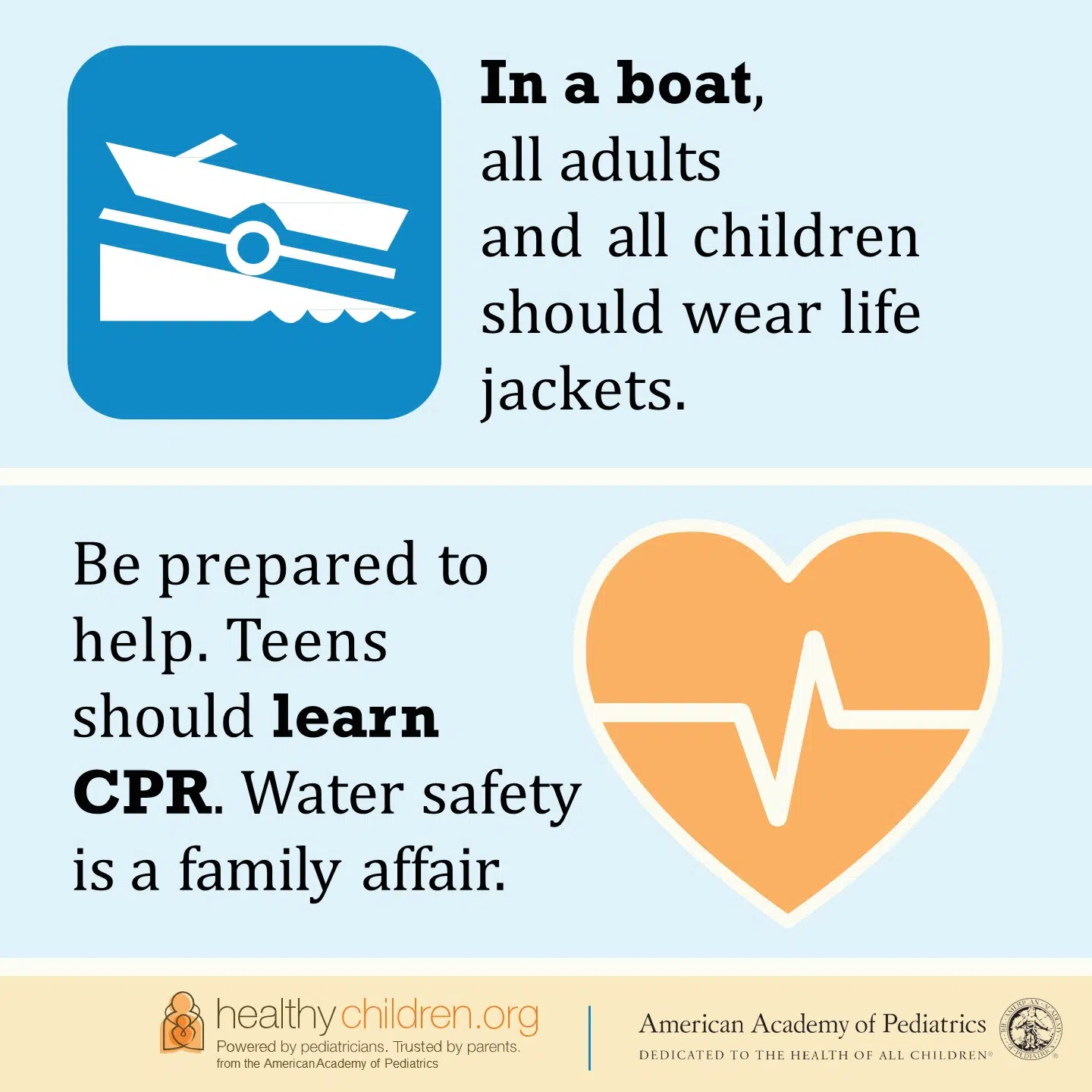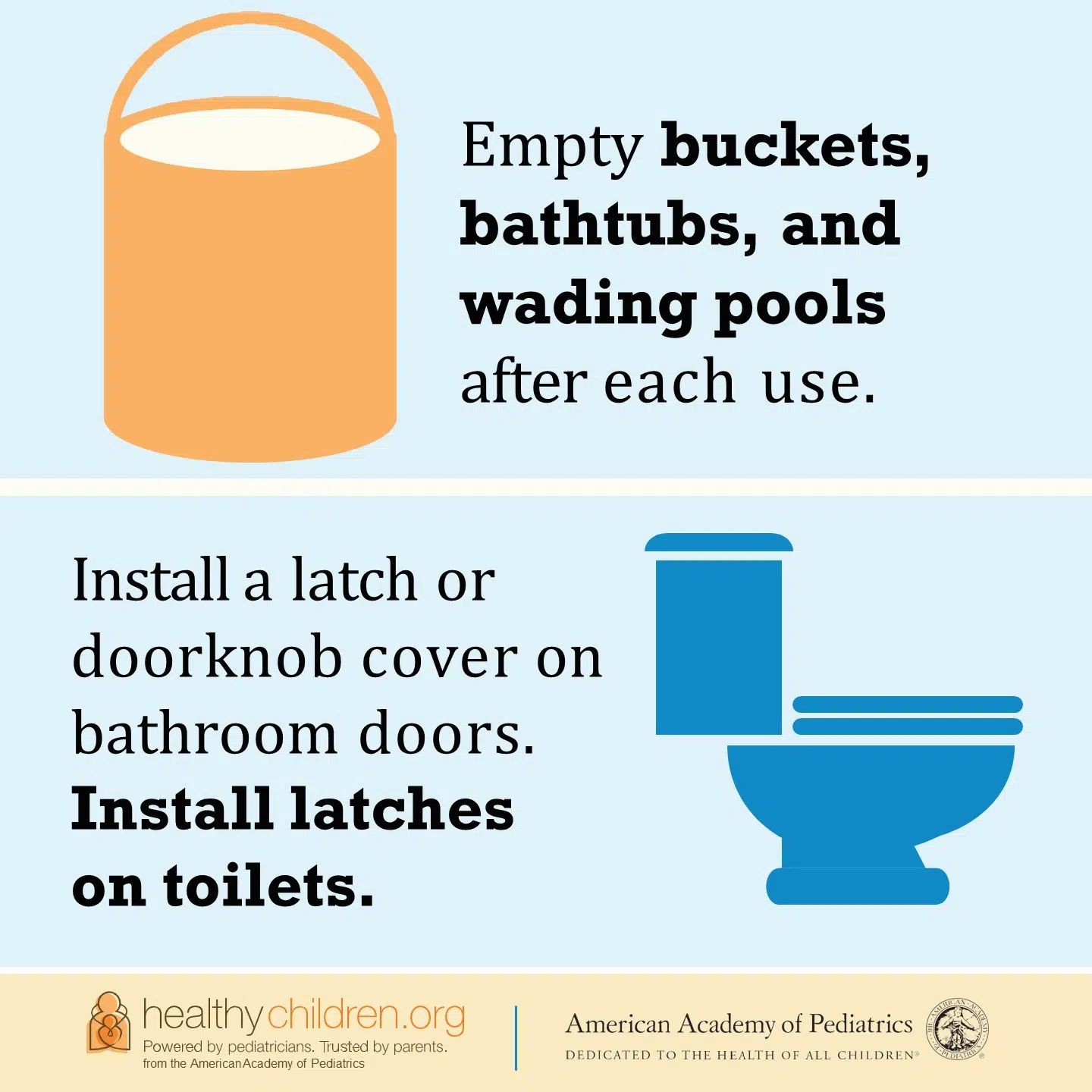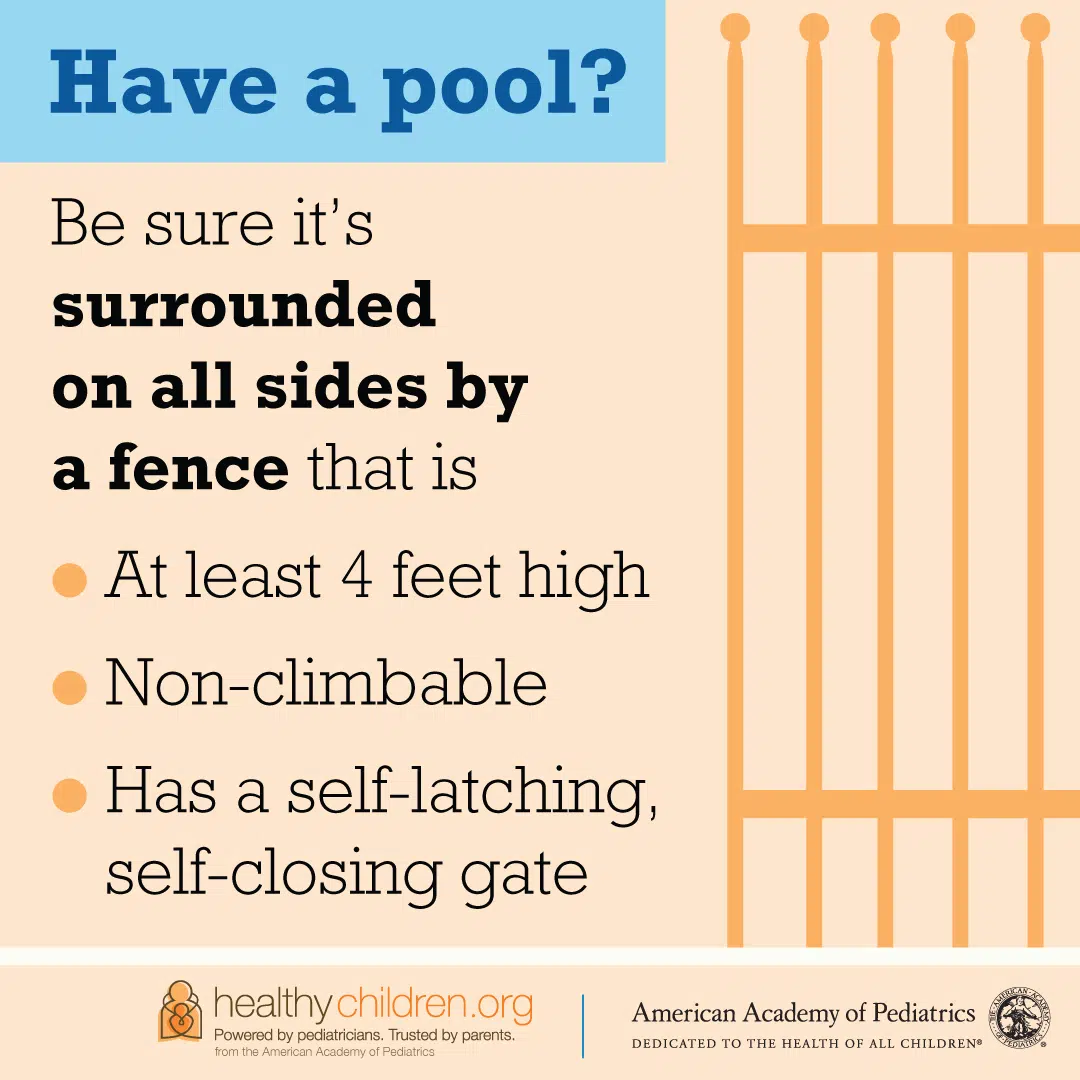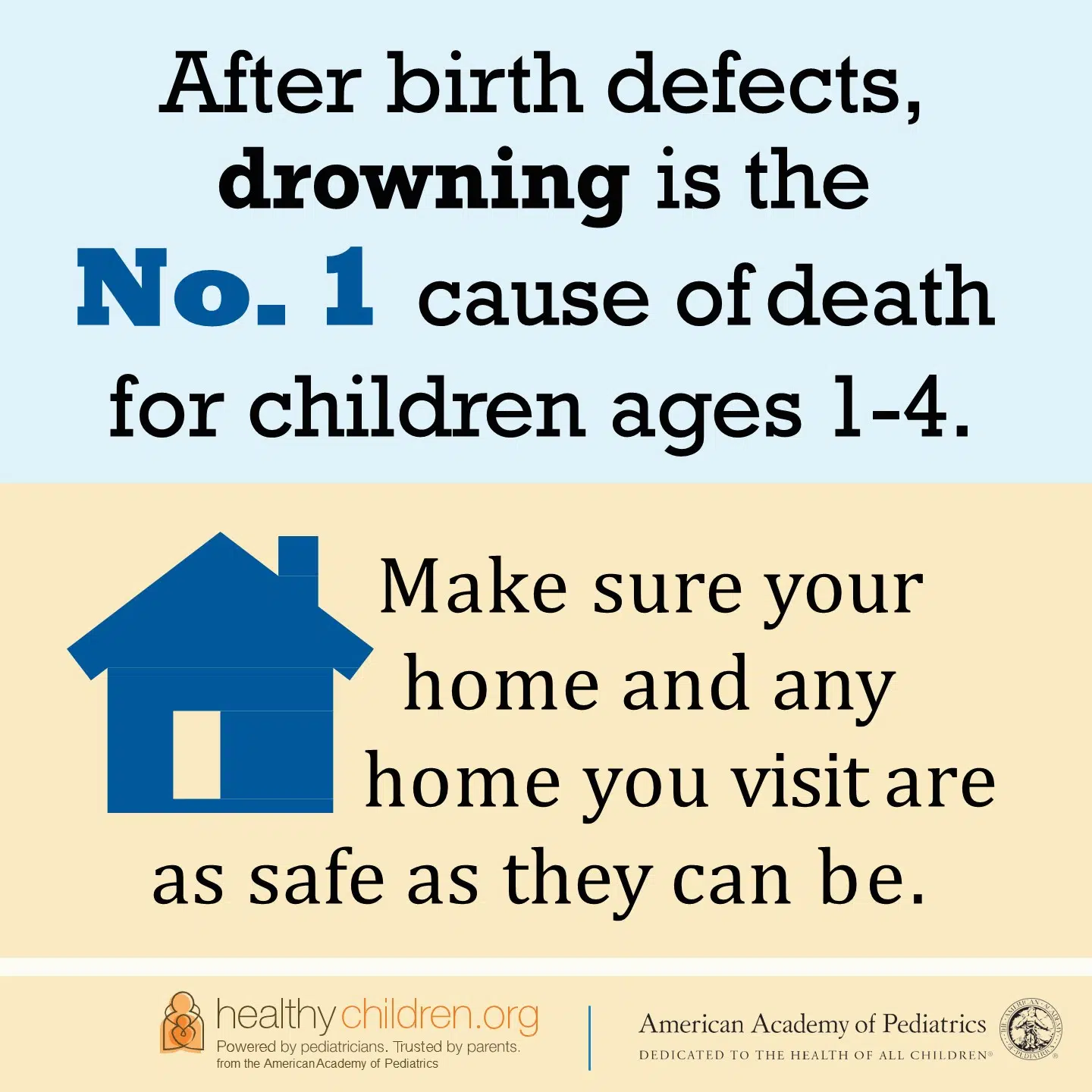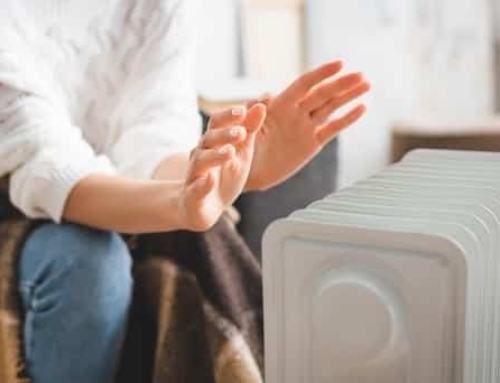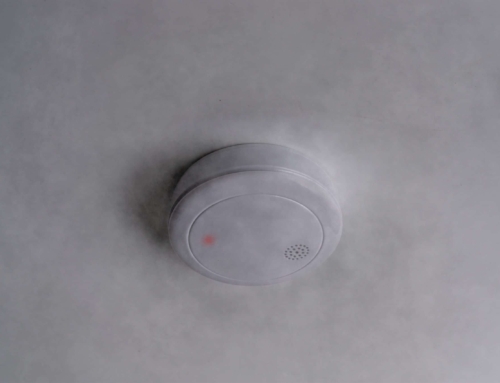Swimming is a favorite summertime activity of both children and adults, and safety is a top concern when water is involved. The U.S. Consumer Product Safety Commission (CPSC) has a report on the number of fatal drownings and drain entrapments in swimming pools and spas involving children younger than five years old, who are the most vulnerable age group.
According to their report, looking at data from 2016 to 2018, June has the highest fatality incident rate. Residential locations made up 72 percent of reported fatal drowning incidents.
The CPSC urges families remain vigilant and practice water safety anytime they are in or around water.
Pool Safety for Children
- Never leave a child unattended in a pool or hot tub, and always watch children closely around all bodies of water.
- Designate a water watcher to supervise children in the pool or hot tub. This person should not be drinking, reading, texting, using a smartphone or be otherwise distracted. If there are multiple adults, take turns being the designated water watcher.
- Teach children basic water safety tips and enroll them in swimming lessons.
- Learn how to perform CPR on infants, children and adults.
- If you have a pool at home, install layers of protection, including a four-foot fence with a self-latching, self-closing gate that surrounds the entire pool, along with a pool/hot tub cover and gate alarm.
- Don’t rely on toys such as water wings, puddle jumpers or pool noodles to keep your children safe. If your child can’t swim, fit them with an appropriate personal flotation device, like a life jacket.
- Keep children away from pool drains, pipes and other openings to avoid entrapment.
- Additionally, ensure any pool and hot tub you use has drain covers that comply with federal safety standards. If you’re unsure, ask your pool service provider about safe drain covers.
- If a child does go missing, look in the pool or hot tub first.
Pool Safety for Adults
- Never swim alone.
- Swim in designated areas supervised by lifeguards.
- Never dive into shallow water.
- Keep a cellphone, first aid kit, flotation device and a pair of scissors (to cut hair, clothing or a pool cover) nearby in case they are needed.
- Protect your skin. Limit the amount of direct sunlight you receive between 10:00 a.m. and 4:00 p.m. and wear sunscreen with UV protection.
- While spending time in the sun, drink plenty of water, even if you don’t feel thirsty. Avoid drinks with alcohol or caffeine in them, as they’ll dehydrate you more quickly.
WATCH: NBC10 news article featuring Acadian Quality Improvement Coordinator Nick Sosso

